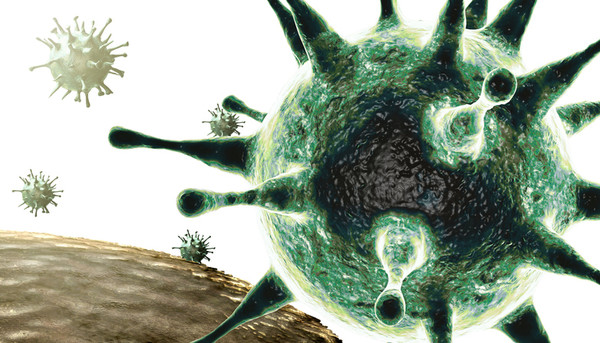A joint team of Korean researchers discovered that clonal hematopoiesis of indeterminate potential (CHIP), a genetic mutation, was the risk factor for severe Covid-19 patients without underlying diseases. They said they found the molecular mechanisms for the excessive inflammatory response in such Covid-19 patients.

The research team included Professors Jung In-kyung at the Korea Advanced Institute of Science and Technology (KAIST), Kang Chang-kyung and Koh Young-il at the Seoul National University Hospital, Song Kyung-ho at the Seoul National University Bundang Hospital, Moon Joon-ho at the Kyungpook National University Hospital, and Lee Ji-yeon at the National Medical Center.
Genome Opinion, a company specializing in genome analysis and led by Professor Koh, also participated in the study.
Covid-19 has spread over the past two years and has infected more than 600 million people worldwide, of which more than 6 million have died.
Due to the severity of the disease in some people, researchers have been actively studying the pathology of the Covid-19 virus and found that severe progression resulted from excessive inflammatory response of monocytes.
However, the research team focused on the fact that large differences in immune response among individual Covid-19 patients could not be fully explained by the existing studies.
So, the researchers collected and analyzed the clinical information of a total of 243 Covid-19 patients in collaboration with four hospitals to find out the serious factors of severe Covid-19 patients who did not had any underlying diseases.
Then, the team identified the clinical characteristics of the group and introduced single-cell gene expression and epigenetic analysis to analyze the gene expression regulation mechanism between the observed clinical characteristics and the excessive inflammatory response in severe Covid-19.
The results showed that severe patients without underlying diseases had clonal hematopoiesis of indeterminate potential (CHIP), which refers to a group with acquired genetic mutations in bone marrow stem cells that form blood and immune cells.
Also, through single-cell gene expression analysis, the team confirmed that an excessive inflammatory response specific to monocytes was observed in severe patients with CHIP.
“This study provided important information in establishing a customized treatment strategy for each Covid-19 patient in the clinical field,” Professor Song said. “We will continue to research customized treatment strategies based on clinical information to increase the survival rate of severe Covid-19 patients.”
The research results were published in two international medical journals, Haematologica, and Experimental & Molecular Medicine.

